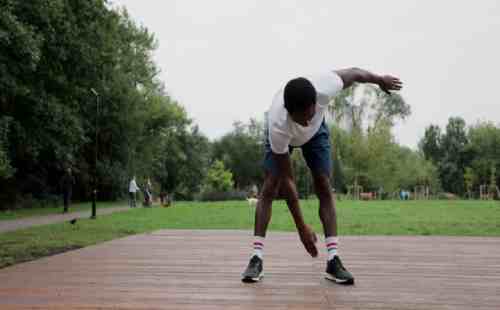Running a marathon is a significant physical and mental challenge that requires careful preparation and strategy. Whether you’re a seasoned marathoner or preparing for your first race, having a solid plan can make all the difference in your performance and enjoyment of the event.
Five Effective Strategies To Help You Successfully Complete A Marathon:

Follow a Structured Training Plan
The key to marathon success lies in consistent and progressive training. Find a training plan that suits your fitness level and goals, whether it’s a beginner, intermediate, or advanced program. A well-rounded training plan should include a mix of long runs, tempo runs, speed work, and rest days to build endurance, speed, and recovery. Stick to the plan as closely as possible, gradually increasing your mileage and intensity over several weeks to prepare your body for the demands of the marathon in Europe distance.
Practice Proper Nutrition and Hydration
Nutrition and hydration play a crucial role in marathon performance. Fueling your body with the right nutrients before, during, and after your runs can help maintain energy levels, prevent dehydration, and aid in recovery. Practice your race-day nutrition and hydration strategy during your long training runs to determine what works best for you. Experiment with different types of energy gels, sports drinks, and snacks to find what sits well with your stomach and provides sustained energy without causing GI distress.
Pace Yourself Appropriately
One of the most common mistakes marathoners make is starting too fast and burning out early in the race. To avoid hitting the proverbial “wall,” it’s essential to pace yourself conservatively, especially during the first half of the race. Aim to run at a pace that feels comfortable and sustainable, saving some energy for the later miles when fatigue sets in. Use a GPS watch or race pacing bands to help you stay on track with your goal pace and adjust as needed based on how you’re feeling on race day.
Stay Mentally Strong
Running a marathon is as much a mental challenge as it is a physical one. Prepare yourself mentally for the highs and lows you’ll inevitably encounter during the race. Practice positive self-talk and visualization techniques to stay focused and motivated when the going gets tough. Break the race down into smaller, manageable segments, focusing on reaching the next mile marker or aid station rather than dwelling on the distance remaining. Drawing inspiration from fellow runners, spectators, or your own reasons for running can also help keep your spirits high when fatigue sets in.
Listen to Your Body
While it’s essential to push yourself during training and on race day, it’s equally important to listen to your body and know when to back off or seek help if necessary. Pay attention to any signs of injury, fatigue, or dehydration during your training runs, and don’t hesitate to adjust your training or seek professional advice if needed. On race day, be prepared to adapt your strategy based on how you’re feeling, whether it’s slowing down, taking walk breaks, or even dropping out if continuing poses a risk to your health and safety.
In conclusion, completing a marathon requires careful planning, preparation, and execution. By following a structured training plan, practicing proper nutrition and hydration, pacing yourself appropriately, staying mentally strong, and listening to your body, you can increase your chances of crossing the finish line feeling strong and accomplished. Remember to enjoy the journey and celebrate your achievements along the way!

